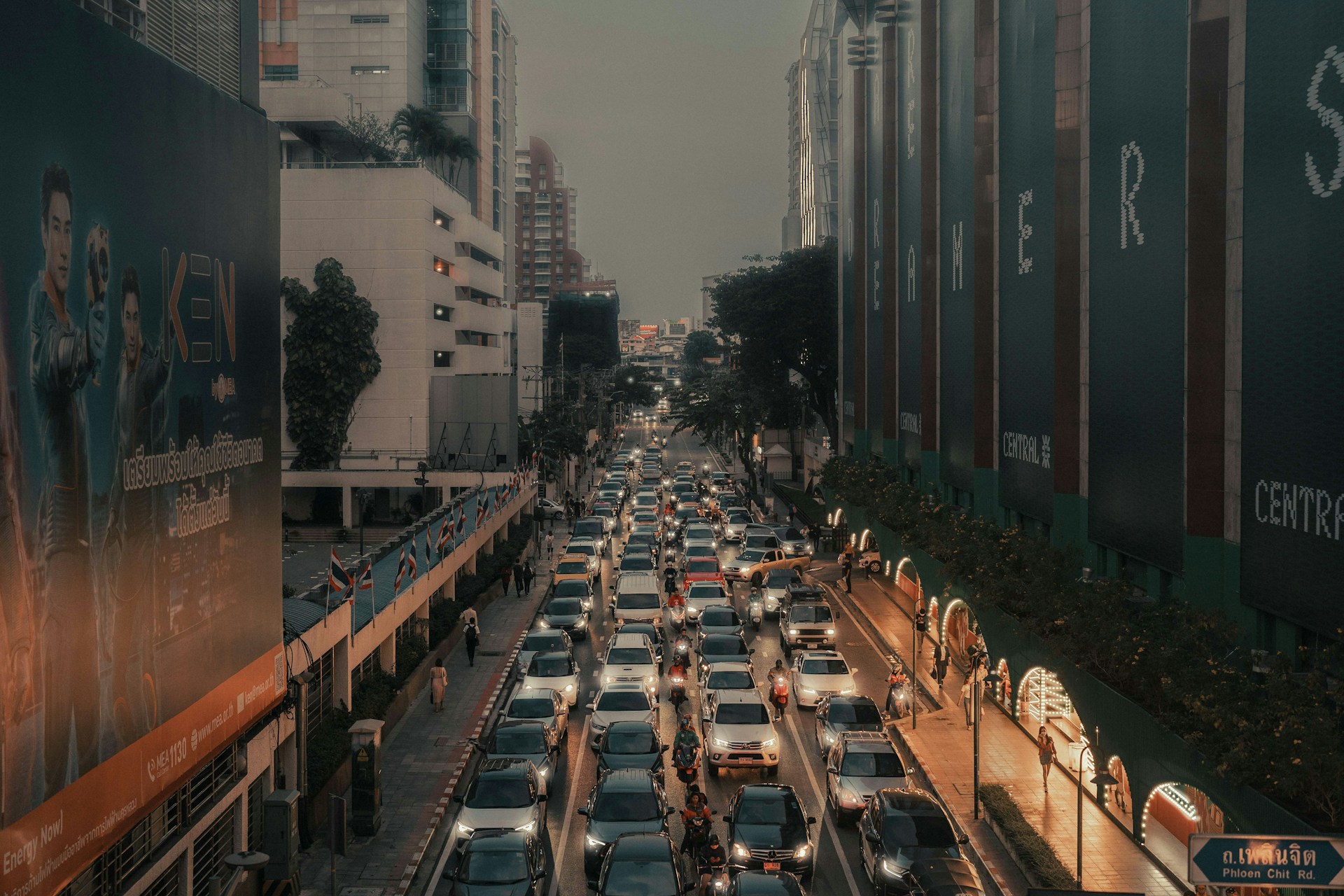Urban Noise Pollution: Health Risks and Mitigation Strategies
The expansion of cities leads to greater frequency of urban noise pollution which threatens millions of people in metropolitan areas daily.
Excessive urban noise from traffic congestion, along with construction sites and industrial activities and the influence of nighttime entertainment, disrupts the daily lives of millions of city residents.
Noise pollution exists as a critical health hazard even though people typically disregard it which adversely affects overall life quality.
The article examines both the health consequences of urban noise pollution and establishes specific strategies to control its damaging effects.
Health Risks of Urban Noise Pollution
Exposure to loud noises for long durations causes major harm to physical health along with severe mental health conditions.
Several major health risks emerge as a result of urban noise pollution.
1. Hearing Loss and Tinnitus
Objects that produce powerful noises like honking vehicles alongside industrial machinery have the capability to permanently harm hearing functions and create ongoing ear ringing known as tinnitus.
2. Sleep Disturbances
Insomnia and fatigue and cognitive impairment become more likely when nighttime traffic noise jointed with construction sounds and objectionable neighbor noises disrupt sleep cycles.
Several medical problems such as obesity along with diabetes and weakened immunity link to poor sleep quality.
3. Cardiovascular Diseases
Chronic noise exposure in the environment raises the chances of developing both high blood pressure and heart disease and stroke.
Noise-related environmental pollution prompts bodily stress which elevates both cortisol production and puts strain on the cardiovascular system.
4. Mental Health Disorders
Continuous exposure to noise pollution leads people toward anxiety followed by increased stress and depression symptoms.
Noise pollution that continues over time produces three effects that include increased irritability and decreased concentration which causes diminished productivity while deteriorating social relationships.
5. Impaired Cognitive Development in Children
Academic performance and attention spans as well as learning ability decrease and attention spans shorten for children who experience high noise exposure near busy roads or airports.

The Economic Impact of Noise Pollution
Noise pollution creates negative effects throughout businesses and economies because it decreases work production while driving up healthcare expenses and diminishing property value.
The section examines the negative effects of noise pollution on economic expansion and city-building projects.
Noise Pollution and Wildlife: Disrupting Urban Ecosystems
Urban animals and humans both suffer from excessive city noise pollution.
The survival and communication along with navigation functions of birds together with insects and other animals depend upon sound.
The section should analyze how noise pollution affects biodiversity.
Innovative Noise Reduction Technologies
Technology developments now provide innovative answers to noise pollution through active noise-canceling barriers in addition to smart building materials and artificial intelligence-based noise monitoring networks.
Details about recent technologies which help achieve better urban noise control should appear in this section.
The Psychological Impact of Noise Pollution: How It Affects Mental Well-being
The adverse consequences noise pollution has on mental health deserve equal notice with those of physical health effects.
The long-term exposure to intense noises results in higher stress and anxiety levels and depression that diminish personal life happiness.
Noise pollution generates various adverse mental health effects on individuals who live near its sources.
- The human body reacts to noise pollution through stress activation that produces cortisol and adrenaline until anxiety becomes permanent. Repetitive noise disturbances such as car horn honking or excessive sound from musical devices stop the brain from reaching relaxation so people stay continuously aware.
- Nighttime noise interruptions cause disrupted sleep patterns that stop people from entering deep sleep phases. Insufficient sleep produces adverse effects on attention levels while causing memory problems and worsened judgment capabilities.
- People exposed to disruptive uncontrolled loud noises develop irritability alongside social withdrawal behaviors which make them avoid interacting with others. Feelings of isolation develop alongside mental health issues because of such situations.
Solutions for Reducing Noise-Induced Psychological Stress
- People who want to protect themselves from noise should wear noise-cancelling earphones and install soundproofing materials at home while practicing relaxation through meditation.
- Urban planning initiatives should create designated zones like parks together with pedestrian-friendly areas which provide noiseless spaces for residents.
- Public education campaigns which highlight noise pollution effects will help citizens and commercial establishments adopt safer noise-level practices including honking reduction along with quieter machine usage.
The recognition of noise pollution as a mental health issue enables officials to implement preventive actions alongside citizens for developing urban areas with decreased noise levels.
Conclusion
The health issue that urban noise pollution poses needs quick solutions.
Cities should establish smart urban planning together with better public transportation systems and strict noise rules in order to develop safer environments for their residents.
Fixing noise pollution benefits municipal residents at an individual level as well as it elevates urban living standards in cities.
FAQs
1. The definition of dangerous noise pollution comes from any sound exceeding 70 decibels which extends over time.
Noises exceeding 70 decibels (dB) duration can harm human health. Sounds which exceed 85 dB cause substantial health dangers to human wellbeing.
2. What actions do people need to take in order to lower noise pollution levels at their residence?
The combination of noise-canceling curtains with soundproof windows together with white noise machines assists in reducing indoor noise disturbances.
3. What existing laws control the noise pollution within society?
Each country as well as every municipality maintains its own set of laws about noise regulations.
4. Is it possible to remove all urban noise pollution?
The elimination of urban noise pollution may be difficult to achieve yet effective urban planning combined with technological progress alongside strict policy implementation methods succeed in decreasing noise disturbances throughout cities.
Also read: Urban Fashion Trends: How Cities Influence Global Style

